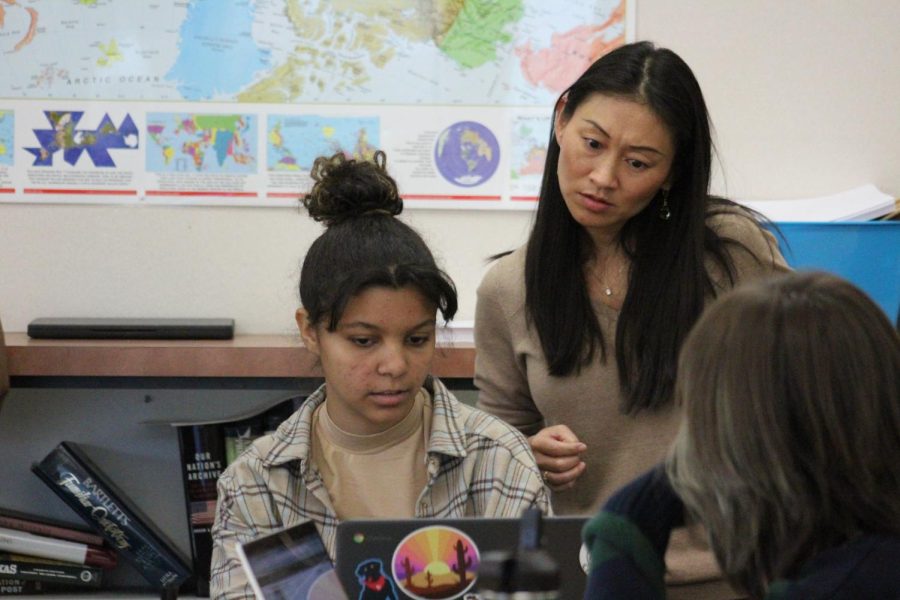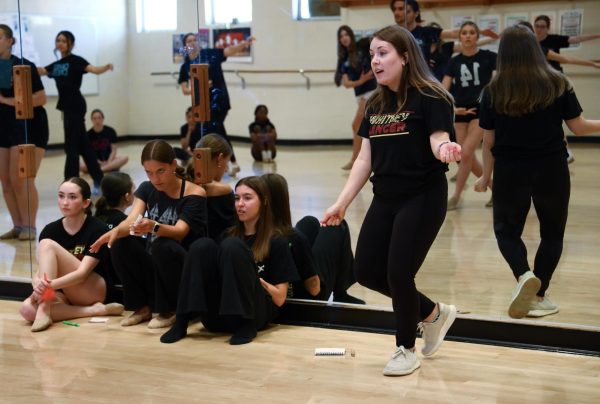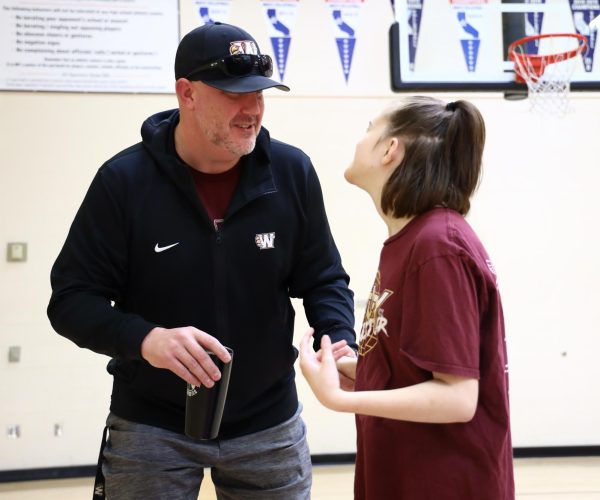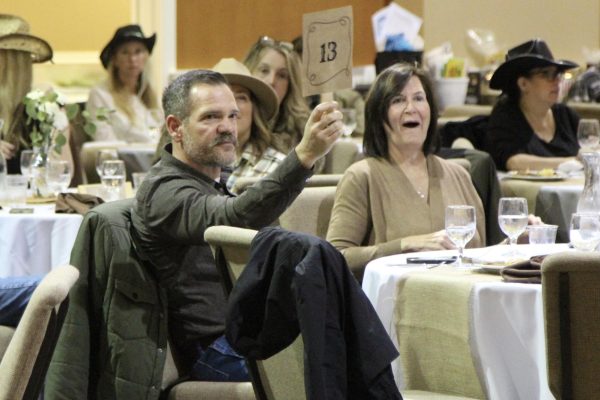New ethnic studies class allows students to represent themselves culturally
In room D2, Mrs.Christianna Heihn clarifies questions that student Cameron Weber has on the Implicit Association Test . Photo by Gianna Geradila.
In this new school year, a new elective course consists of learning about the culture, history, struggles and contributions of historical minority groups. Ethnic Studies focuses on exploring and covering the perspectives of different ethnicities.
“The core concepts that we focus on and discuss in this class are equality, justice, race, ethnicity, indigeneity and representation,” Mrs. Christianna Heihn said.
Through taking this class, students can develop a better understanding of the impact an individual’s culture and identity has on creating change and systems within their community.
This class is discussion based, where students talk about their experiences as an individual and how they feel about certain topics that typically wouldn’t be discussed in other classes.
Cameron Weber, one of the students enrolled in ethnic studies, shares her experience of the class.
“I like how supportive the whole class is and how nonjudgmental it is and accepting of all types of races and ethnicities,” Weber said.
As most students are unfamiliar with this class, Heihn’s intention for this class is to create an environment where students can feel represented and gain an understanding of other cultures.
“This is a really important subject where students can have somewhere where they feel like they can see themselves in the content and explore their own identities and can see themselves being a part of US history. And it’s important for them to see diversity on campus and to have a place like that,” Heihn said.
Previously, Rocklin High School was the first to begin the process of developing the class a year ago. The process of creating ethnic studies sparked discussions within board meetings which were taken into consideration while making the class.
The course was adopted by the school board in preparation for the upcoming California state requirement that mandates the class is accessible to all students.
Adrian Deveza, another student in that class, shares what he likes the most about the class.
Deveza said, “I really like how open the environment is and how comfortable we are with sharing some of the things we experienced with each other. [We also talk about] how we feel about certain topics that might be uncomfortable to talk about with other classes.”
by GIANNA GERADILA











